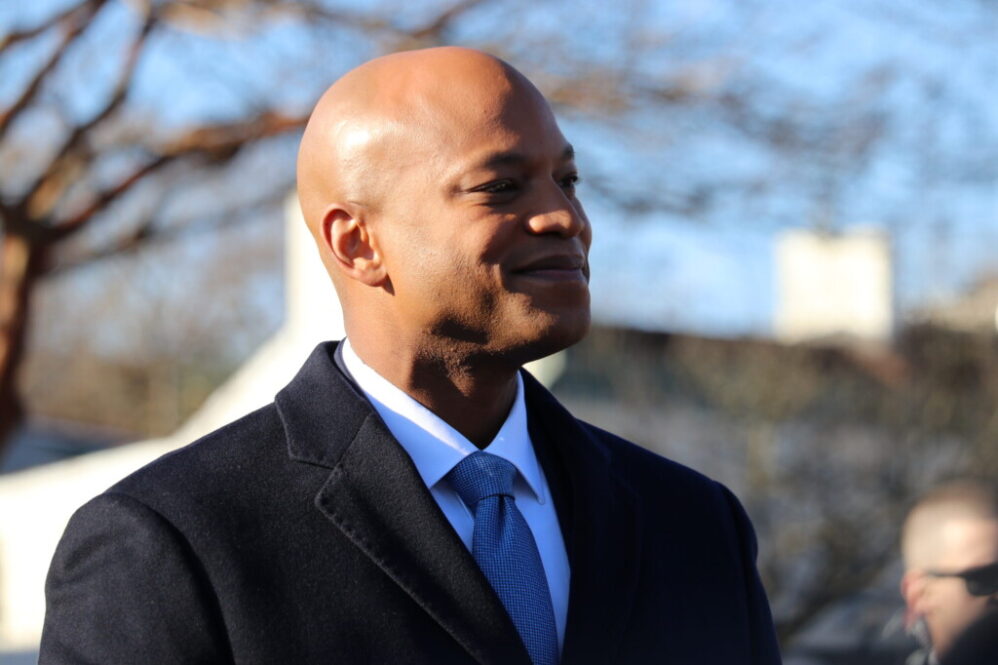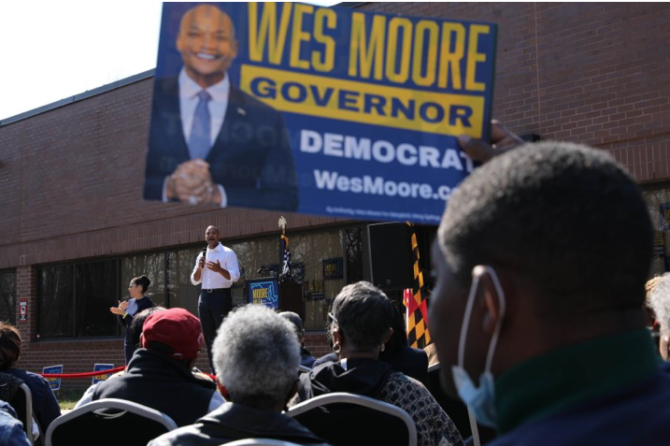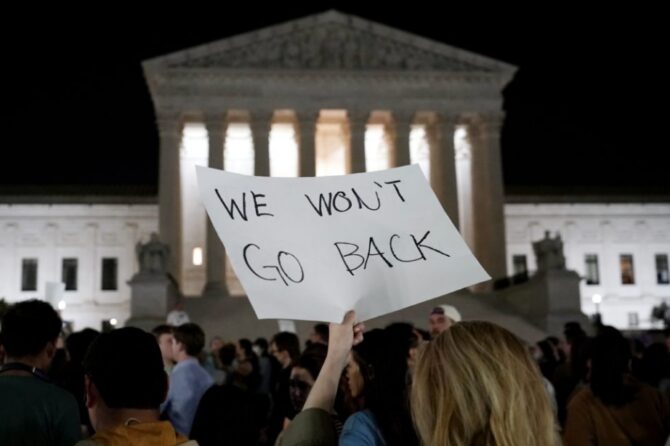MARYLAND MATTERS: Wes Moore became the 63rd governor of Maryland — and the state’s first Black chief executive — on Wednesday, pledging to throw open the doors of opportunity to all.
In remarks offered soon after he was sworn in, Moore acknowledged the inescapable significance of the moment.
“As we stand here today, looking out over Lawyers’ Mall, and you can see right there the memorial to Justice Thurgood Marshall, it’s impossible not to think about our past and our path,” he said.
“We’re blocks away from the Annapolis docks, where so many enslaved people arrived in this country against their will. And we are standing in front of a capitol that was built by their hands.”
Moore’s inaugural remarks, delivered on the north side of Maryland’s historic State House in Annapolis, reprised several themes he invoked during his successful campaign, including his view that the state is “asset-rich and strategy-poor.” Going forward, Moore promised, Maryland will leave no one behind.
The new governor said the state will cast aside the “false choices” that are commonplace in modern policy debates.
“We do not have to choose between a competitive economy and an equitable one,” he said. “Maryland should not be 43rd in unemployment or 44th in the cost of doing business. We should not tolerate an 8-to-1 racial wealth gap, not because it only hurts certain groups, but because it prevents all of us from reaching our full potential.”
Ad-libbing heavily throughout his text, Moore pledged to put Maryland on course to “generate 100% clean energy by 2035,” and he called climate change “an existential threat for our entire state.”
He also pledged to offer a service year option for all high school graduates, saying, “My years of service transformed me. … I want every young Marylander, of every background and from every community, to have the opportunity to serve our state.”
Moore took the oath twice. He officially became governor at 12:08pm, when he was sworn in by Chief Justice Matthew Fader in the Senate chamber. Moore’s left hand rested on two Bibles, including one used by abolitionist Frederick Douglass. The other was from his grandfather, the Rev. James Thomas, the first Black minister in the history of the Dutch Reformed Church
Turning toward the chamber, he pumped his fists in the air and hugged his children James and Mia, hugged his mother, Joy, and kissed his wife Dawn.
More than an hour later, at 1:21pm, Moore and Fader re-enacted the oath-taking outside for the benefit of the large crowd that had gathered, under sunny skies, on and beyond Lawyers Mall.
The crowd cheered enthusiastically and the Maryland Air National Guard 104th Fighter Squadron conducted a flyover while a 19-gun salute could be heard in the distance.
The 44-year-old Democrat, born Westley Watende Omari Moore in Takoma Park and raised largely in New York, spoke for 20 minutes. The charismatic political newcomer — a winner in his first campaign — crafted most of his inaugural address himself, spending the last few weeks tweaking his remarks.
During his 17-month campaign, Moore largely sidestepped questions about his potential role in history. But he began his day on Wednesday with a wreath-laying ceremony at the Kunta Kinte-Alex Haley Memorial in downtown Annapolis, where he paid tribute to the former slave and the author who made his story of suffering famous.
With the Maryland General Assembly already in session, Moore’s inaugural speech stuck to broad themes. He is expected to unveil at least some of his key priorities in the next few days.
Moore’s path to the governorship was unusual, running through successful stints as a Rhodes Scholar, Army paratrooper, investment banker and non-profit executive. So too was his inaugural. Among the boldface names in attendance: Oprah Winfrey, Chelsea Clinton, former U.S. Attorney General Eric Holder, former Massachusetts Gov. Deval Patrick, and more.
Winfrey, who got her start as a 22-year-old news anchor at WJZ-TV in Baltimore, introduced Moore before his remarks and praised him at length. Winfrey said every conversation she’s ever had with Moore is “memorable” for his ability to inspire.
Aruna Miller (D), who made history herself as the first woman of color to be elected lieutenant governor, took her oath of office just before Moore, using a copy of the Bhagavad Gita, the revered Hindu text.
The new governor has pledged to give Miller, a longtime transportation engineer who worked for Montgomery County government, a significant portfolio.
Former Gov. Larry Hogan (R) attended the inaugural festivities. Moore thanked Hogan for his service to the state and for his assistance during what appeared to be a drama-free transition.
The Moore-Miller ceremonies capped a swirl of history-making and barrier-shattering events unprecedented in Maryland’s history. They also represented a significant generational shift in state leadership.
On Jan. 3, 61-year-old Anthony Brown (D), a former congressman and lieutenant governor, became the state’s first-ever Black attorney general, replacing 76-year-old Brian Frosh (D). On Monday, Comptroller Brooke Lierman (D), a former state delegate from Baltimore City, became the first woman to serve as the state’s chief tax collector. The 43-year-old Lierman, took the post held for 16 years by 75-year-old Peter Franchot (D).
This story will be updated.
Photo: Wes Moore was inaugurated Wednesday as Maryland’s 63rd governor. Photo by Danielle E. Gaines.









